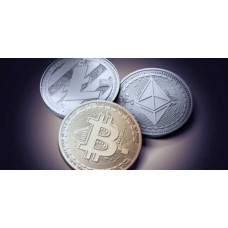Cryptocurrencies, no substitute for gold!
In their investment update for January 2018, World Gold Council says, ‘Cryptocurrencies are no substitute for gold!’. Bitcoin’s parabolic price rise was the big story of 2017 – putting the spotlight on the cryptocurrency market. While gold’s performance was a solid 13%, it was a fraction of the 13-fold increase of bitcoin by the end of the year. Some commentators went as far as to claim cryptocurrencies could replace gold.
Cryptocurrencies may become an established part of the financial system. But, in our view, gold is very different from cryptocurrencies, as gold:
1: is less volatile
2: has a more liquid market
3: trades in an established regulatory framework
4: has a well understood role in an investment portfolio
5: has little overlap with cryptocurrencies on many sources of demand and supply.
These above characteristics underpin gold’s role as a mainstream financial asset that will likely continue to resonate in today’s digital world. Despite anecdotal comments from well-regarded financial commentators that gold prices and gold demand are suffering at the expense of cryptocurrencies, there isn’t any quantifiable evidence that gold holdings are directly suffering from competition from cryptocurrencies.
The weakness in physical demand in 2017 – for example, the paltry sales of US Eagles – is largely explained by the steady march higher of the S&P 500. Other established gold markets – such as China – saw healthy levels of demand. Overall, the level of the gold price in 2017 appears to be consistent with drivers of the past few years and is showing no signs of suffering from crypto-competition.
Another factor to consider is competition within cryptocurrencies themselves. There are currently over 1,400 cryptocurrencies available and, while bitcoin is the largest by far, new technology could have devastating effects on the value and supply of any of the cryptocurrencies, including bitcoin.
Blockchain technology, the distributed ledger mechanism that underpins cryptocurrencies such as bitcoin, is genuinely innovative and could have wide-ranging applications across financial services and beyond. In the gold market, various players are exploring blockchain in the context of transforming gold into a ‘digital asset’, tracking gold provenance across the supply chain, and introducing efficiencies into post-trade settlement processes.
Such applications are typically built on private blockchains operated by trusted parties rather than using bitcoin or other ‘public blockchains’.
“In our view, bitcoin and cryptocurrencies more generally are not a substitute for gold. Gold is a tried and tested effective investment tool in portfolios. It has been a source of returns rivalling that of the stock market over various time horizons; it has performed well during periods of inflation; it has been a highly liquid, established market; and it has acted as an important portfolio diversifier, exemplifying negative correlation to the market during downturns.”
Cryptocurrency’s performance has, until recently, been remarkable, but its purpose as an investment seems quite different from gold. Cryptocurrencies have yet to be tested in multiple markets. Since bitcoin’s inception, the stock market has been in an incredibly low volatility, trending, bull market, with very few pullbacks. The crypto-market is young, and liquidity is scarce. Its price behaviour at this point, while still attractive to many investors, seems to be driven by high return expectations.




